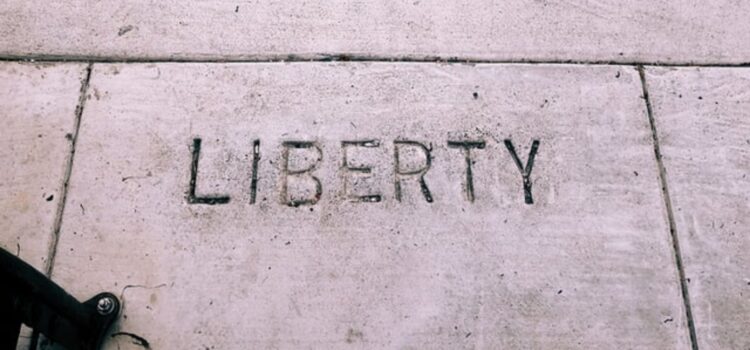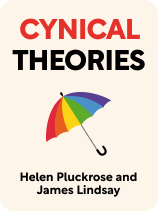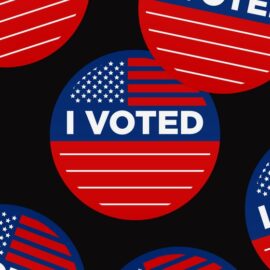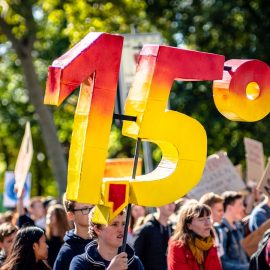

This article is an excerpt from the Shortform book guide to "Cynical Theories" by Helen Pluckrose and James Lindsay. Shortform has the world's best summaries and analyses of books you should be reading.
Like this article? Sign up for a free trial here.
Does it seem like society is falling apart? What’s the answer to the cultural decay all around us?
Social justice scholarship and activism changed from a force for good to a dangerous movement with totalitarian tendencies. That’s the view of Helen Pluckrose and James Lindsay, who say that the tenets of liberalism—namely freedom of speech and belief in science—matter more today than they ever did.
Read more to learn about the importance of liberalism in society, especially now when so much is at risk.
The Importance of Liberalism
In their book Cynical Theories, Pluckrose and Lindsay outline historical shifts in social justice scholarship and how they led to the Social Justice Movement’s current beliefs. Then, they shift gears to discuss the importance of liberalism. They explain why liberalism is preferable for addressing social inequality. They argue that capitalism and democracy—the two cornerstones of liberalism—are self-correcting institutions because they welcome criticism through rational debate and give the people tools (political and economic participation) to address social problems. This process of consistent improvement is preferable to the Social Justice Movement, which the authors say aims to shut down rational debate in favor of their own fixed doctrines.
(Shortform note: While Pluckrose and Lindsay view capitalism and democracy as stable, self-improving institutions, some liberal scholars argue they’re relatively fragile and require consistent intervention to function correctly. For example, liberal economist John Maynard Keynes studied the boom-bust cycles of capitalism and concluded for the greatest overall human well-being, governments must supplement the free market with social programs. In addition, many liberal scholars in works like Why Nations Fail and Making Democracy Work argue democracy is very fragile and requires precise circumstances to remain successful.)
To demonstrate why this is the case, Pluckrose and Lindsay show how freedom of speech and belief in science make liberalism better for addressing inequality than the Social Justice Movement.
Freedom of Expression
The authors argue liberalism’s emphasis on free and open debate among rational individuals is an excellent way to address social inequality. Freedom of speech and expression allows ideas contrary to dominant narratives to circulate freely and gain traction based on merit and leads to societal shifts when enough people conclude the status quo is unjust. In addition, emphasis on free and open rational debate encourages people to empathize and cooperate to find common ground—including with disadvantaged groups—helping people address their biases and work together to fight social inequality.
(Shortform note: Instead of just permitting rational, open debate, professor of philosophy Michael Sandel (Justice) argues the government should encourage it through public works and community projects. By encouraging people of all backgrounds to work together toward common goals and spend time with one another, Sandel explains, society will develop a greater sense of common purpose and respect. This will then enable more productive conversations around political issues since people who respect one another will be less likely to close themselves off to each other’s ideas or use divisive rhetoric.)
Belief in Science
Pluckrose and Lindsay also argue that liberalism’s strong belief in science allows it to challenge dominant narratives and address biases. Since the scientific method relies on evidence-based theories that are rigorously challenged and updated, it enables people to catch and correct their own mistakes—including mistakes resulting from bias. This also means the scientific community is willing to challenge dominant narratives provided there’s evidence to disprove them. The authors suggest evidence-based refutations of dominant narratives are far more convincing to the average person compared to deconstruction or policing language. Therefore, a philosophy based on science is better for getting people to fight social inequality.
(Shortform note: Some philosophers and politicians argue that technical and scientific expertise and knowledge should be the basis of all government decisions. These technocrats on the left and right alike believe rational, scientific thought is the best way to organize society—informing how to address inequality, make the economy more efficient, or even navigate matters of war and peace. Technocrats use logic similar to Pluckrose and Lindsay’s to suggest their system of government is ideal, arguing the scientific method allows the government to get past petty politics and address problems rationally.)

———End of Preview———
Like what you just read? Read the rest of the world's best book summary and analysis of Helen Pluckrose and James Lindsay's "Cynical Theories" at Shortform.
Here's what you'll find in our full Cynical Theories summary:
- How and why modern advocacy has gone too far
- How social justice scholarship and activism has become dangerous
- Why freedom of speech and belief in science are more important than ever






